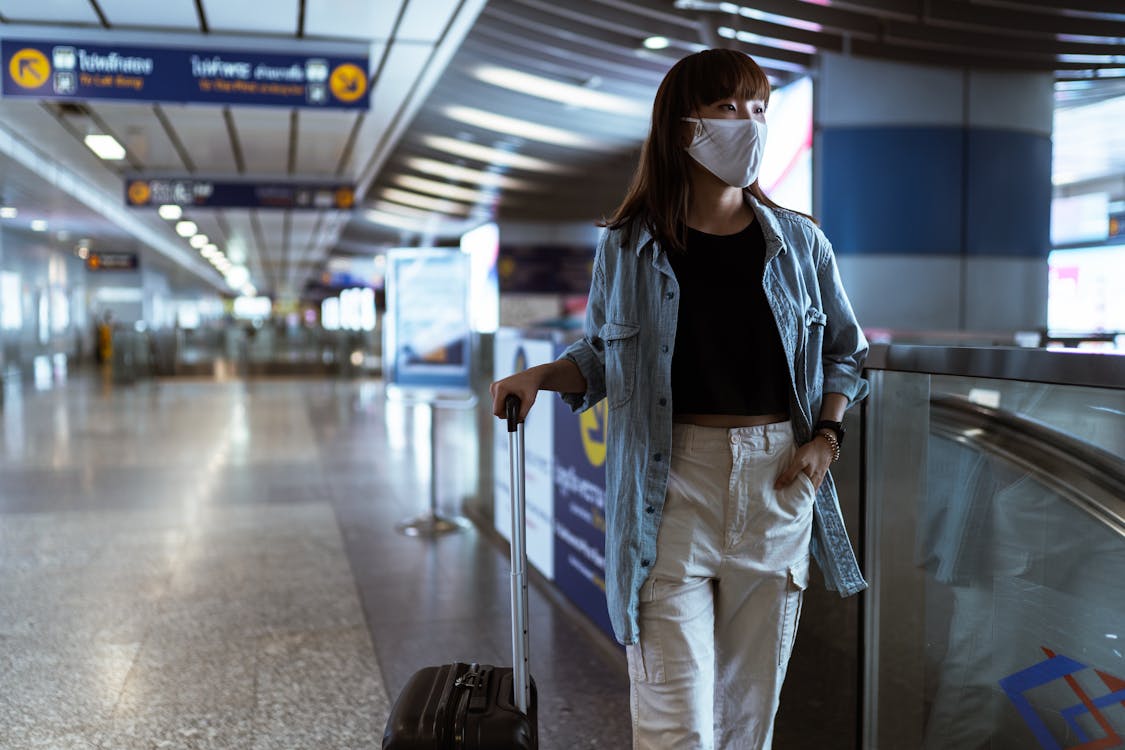The Best 10 Pieces Of Advice For Traveling Students
Today, learning extends outside the classroom. More universities now offer study abroad programs to make learning experiential. On occasion, students need to step outside the class and have fun. At the same time, though, traveling students can come across many challenges.
Though studying abroad might seem straightforward on paper, experiencing it isn’t that simple. You need to find accurate information that will help you in a new environment. Here are a few pointers to make your transition to a new place seamless.
**DISCLAIMER: At the time of publication for this post, we are amidst the COVID-19 global pandemic. Please consult with the World Health Organization and Center for Disease Control before traveling.**
1. Ask the experts
Whether you are a seasoned traveler or are on your first big trip, expert help is valuable. With so many travel destination choices, making an informed choice is challenging. Although guidebooks are useful, experts can give you first-hand information.
Consult your study abroad advisor for answers to your concerns. If you have pending assignments, ask expert writers, and do my essay before you leave. Some common topics you can ask the trip leader include:
- How to pack including allowed and prohibited items
- Accommodation and meals
- Internet connectivity
- The host country’s customs and values
- Safety and health
You can also turn to websites that are specifically designed to help traveling students, like Momondo. Momondo helps you save money on your travel expenses, but their expert help doesn’t stop there. They give well-researched advice on when it’s best to visit a certain destination, things you can do there, and other important information. Check out Momondo before studying abroad!
2. Ask for Academic Help
Some colleges provide extra services to help their students while they are abroad. The services vary by institution. College students have diverse needs, so take the time to makes sure you are getting yours met while you’re abroad.
During the planning phase, ensure you notify the college early enough. This way, the school leaders get enough time to provide the necessary resources. Standard support services include:
- Accommodation for students who are overseas for academics
- Technology training
- Support services for learners with mental health challenges
- Advocacy
- Assistive technology
3. Learn Basic Language Phrases
A significant problem is understanding the language used in a non-English speaking country. With programs like Rosetta Stone, you can learn common phrases in various languages. Look for greetings, polite phrases, favorite foods, and other things you’ll use frequently. Sign up for Rosetta Stone today!
If you want to read more about learning another language, read our article 6 Reasons Why You Should Learn Another Language Now.
4. Research the Destination Country
Finding more information about your destination gives you a glimpse of what your experience will be there. Knowing this ahead of time helps in planning, risk assessment, and making a travel abroad checklist.
An informed person knows what to pack and how to access money in their destination country. Also, you can budget for various items that the school does not support. The Center for Global Education recommends researching and planning for:
- Accommodation and meals
- Money and banking
- Packing
- Prescriptions and other medical needs
- Academic culture and standards
- Internet access
- Transportation
- Country’s customs and values
5. Go During off-peak times
Different locations have different peak times for tourists, weather, local activities, and other factors. For example, summer is an off-peak season in some places but the busiest tourist season in others. Some parts of a country are always at their peaks. Other parts of the country are off-peak in the summer. That’s why guidebooks and experts can inform your choice.
Momondo will help you know when is the best time to go somewhere. They have information on what months have the most tourists, when the weather is the best, and other pertinent information. Do your research!
6. Find student-focused tour agencies
Some agencies offer fantastic deals for traveling students. Their focus on helping young people goes beyond making the trip affordable. They also offer activities that are both fun and informative. When traveling abroad, they promise both fun and experiential learning. Also, most of these agencies guarantee their clients travel insurance and top-quality hospitality.
7. Flash your student card
A school ID card is not valuable once you cross the border of your home country. But an International Student Identity Card (ISIC) does more than verify that you are a student. With it, you can enjoy student discounts and benefits in about 130 countries.
At first, the card focused on travel discounts, but with time, it has evolved. There is now an emphasis on the needs of modern-day, traveling students. First, you can get discounts on over 150,000 products and services that are pertinent to a learner. Another perk is that you can save it as a digital copy on your smartphone, so you don’t have to worry about carrying it around all the time.
Third, you get offers on some of your favorite hobbies. Examples include music festivals and events, streaming services, sporting events, among others. You don’t want to miss out on getting an ISIC!
8. Travel on trains or buses
Trains and buses are a safe and easy way to travel, whether you have to go a short or long distance. It is easy to get lost when driving in unfamiliar places for several reasons.
You do not know the traffic rules of that country, and Google Maps can be inaccurate in some regions of the world. Additionally, the language barrier can hinder how you move from one location to the next. Thus, most guidebooks with international travel tips recommend that students should use public means of transportation. Your safety should always come first.
9. Befriend locals
Adjusting to a new culture without the help of a local can be difficult. One is likely to experience culture shock before adjusting. As a result, this can affect your grades in the first few months. Finding academic help in such circumstances is the most viable option. While a local friend helps you to adjust, you can search for already written essays online. This way, one maintains their grades while adjusting to a new environment. Do not assume that you have no adjustments to make. So, make an effort to befriend a local student. But, keep in mind that safety precedes cultural change. Assuming that everyone is who they claim to be can have detrimental effects. Do a background check on them through social media platforms.
10. Have Alternate Forms of Communication
Although there have been advances in technology, internet access is not universal. In some cities of developing nations, accessing your email can be difficult. While these destinations have access to 3G networks, mobile communications can fail. Also, your SIM card might not be supported in another country. So, before you leave, consider if there are other ways of communicating.
Maintaining contact with your parents is among the top safety tips for traveling students. Cybercafes, restaurants, and local service providers in these countries can offer you alternatives. When researching, check if these facilities exist in your destination city.
It is never too late to have great educational experiences. Undergraduate, Master’s, and Ph.D. students can all learn and have fun out the classroom. Take advantage of this experiential learning opportunity and build your connections.


